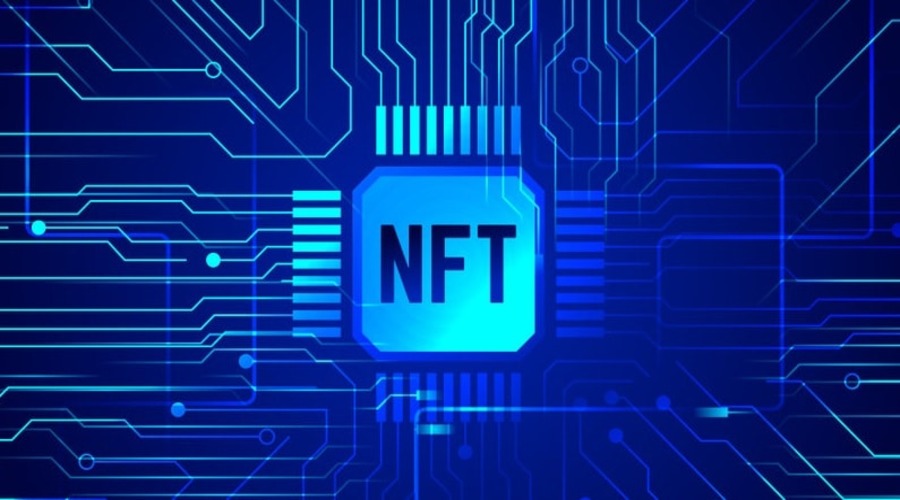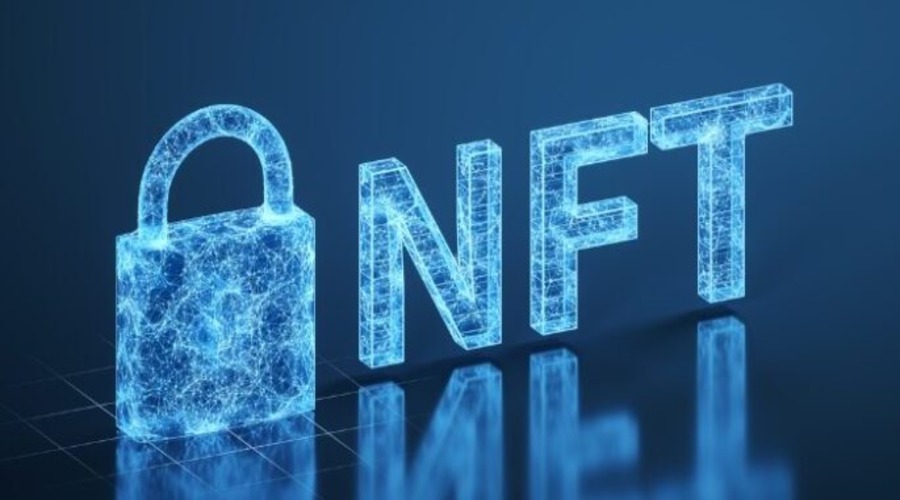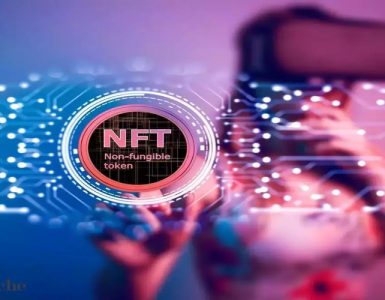The world of non-fungible tokens (NFTs) has gained immense popularity and attention in recent years. These unique digital assets have revolutionized the way we perceive and trade digital collectibles, artworks, and virtual real estate. However, as the NFT market continues to grow, scalability has emerged as a critical factor that directly impacts the security of these digital assets.
Introduction to NFT
With the rise of blockchain technology, NFTs have become a significant part of the digital economy. NFTs rely on blockchain networks, such as Ethereum, for their creation, ownership, and transfer. While the concept of NFTs brings exciting possibilities, it also introduces challenges related to scalability and security.
Understanding Scalability and NFT
Scalability refers to the ability of a system to handle increasing amounts of data or users without compromising its performance. In the context of NFTs, scalability is crucial as it determines how efficiently a blockchain network can process and confirm transactions related to NFTs.
The Importance of Security in NFT
Security is of utmost importance in the world of NFTs. NFTs represent unique digital assets with significant value, and their ownership is recorded on the blockchain. Ensuring the security of NFTs is essential to prevent unauthorized access, counterfeiting, and fraudulent activities.
Scalability Challenges for NFT
As the popularity of NFTs has soared, scalability challenges have emerged, posing risks to the security of these digital assets.
- Increased Network Congestion: The growing demand for NFTs has led to increased network congestion on popular blockchain networks like Ethereum. When the network is congested, transactions can experience delays and higher fees, impacting the user experience and potentially leading to security vulnerabilities.
- High Gas Fees: Gas fees refer to the transaction fees required to execute operations on blockchain networks. In the case of NFTs, minting, buying, and selling NFTs often incur substantial gas fees. High gas fees not only deter smaller investors but also increase the overall cost of owning and trading NFTs.
- Slow Transaction Confirmation: Blockchain networks rely on a consensus mechanism to confirm transactions. However, due to scalability limitations, confirmation times for NFT transactions can be slow. Delays in transaction confirmation can create uncertainties and increase the risk of security breaches during the transaction process.
Impact of Scalability on NFT Security
The scalability challenges faced by NFTs have a direct impact on their security. Let’s explore some of the key security implications.
- Vulnerabilities in Smart Contracts: NFTs are powered by smart contracts, which are self-executing agreements with predefined rules and conditions. Scalability issues can strain the execution of smart contracts, leading to potential vulnerabilities and loopholes. Malicious actors may exploit these vulnerabilities to manipulate or compromise the ownership and authenticity of NFTs.
- Risk of Front-Running Attacks: Front-running attacks occur when an entity exploits their knowledge of pending transactions to manipulate the market. Scalability challenges, such as slow transaction confirmation, can make NFT transactions more susceptible to front-running attacks. These attacks can result in unfair pricing, unauthorized ownership transfers, and overall loss of trust in the NFT ecosystem.
- Potential for Counterfeit NFT: Scalability limitations can create an environment where counterfeit NFTs can proliferate. In cases where transaction confirmation is slow or congested networks lead to delays in information propagation, malicious actors can create counterfeit versions of existing NFTs and attempt to sell them before the genuine ones. This undermines the value and integrity of NFTs as authentic digital assets.
Solutions for Scalability and Security on NFT

To address the impact of scalability on NFT security, various solutions are being developed and implemented.
- Layer 2 Scaling Solutions: Layer 2 scaling solutions aim to alleviate network congestion and increase transaction throughput without compromising security. These solutions leverage off-chain mechanisms to process transactions and settle them on the main blockchain periodically. By offloading some of the transaction processing to secondary layers, Layer 2 solutions can significantly improve scalability and reduce gas fees associated with NFT transactions. Examples of popular Layer 2 scaling solutions include Optimistic Rollups and zkRollups, which aim to enhance scalability while maintaining the security guarantees of the underlying blockchain.
- Optimized Smart Contracts: Developers are continuously working on optimizing smart contracts to improve efficiency and reduce gas costs. By streamlining contract code and reducing unnecessary computational overhead, smart contracts can be made more scalable, reducing the strain on the underlying blockchain network and minimizing security vulnerabilities. Additionally, the adoption of newer programming languages and frameworks specifically designed for smart contracts, such as Vyper, can contribute to more secure and efficient contract execution.
- Auditing and Security Standards: To enhance the security of NFTs, rigorous auditing and adherence to security standards are paramount. Auditing processes involve comprehensive code reviews and vulnerability assessments to identify potential security risks. Third-party security auditors can thoroughly examine the smart contracts, ensuring they adhere to best practices and are resilient against common attack vectors. Additionally, industry-wide security standards, such as the ERC-721 standard for NFTs, provide guidelines and best practices to ensure secure NFT development and deployment.
Balancing Scalability and Security on NFT
Finding the right balance between scalability and security is crucial for the sustainable growth and adoption of NFTs.
Finding the Right Trade-Off
Developers and blockchain networks must strike a balance between scalability and security considerations. While improving scalability is necessary to handle increased demand, security should not be compromised in the pursuit of scalability. Careful design and implementation of scaling solutions are required to maintain the integrity and trustworthiness of NFTs. It is crucial to conduct thorough testing and security audits of new scaling solutions before their deployment to ensure they do not introduce vulnerabilities or compromise the security of the NFT ecosystem.
User Education and Awareness
Educating users about the potential security risks associated with NFTs is vital. By understanding the challenges and adopting best practices, users can make informed decisions when engaging with NFTs. User awareness programs, security guides, and educational resources can contribute to a safer and more secure NFT ecosystem. Platforms and marketplaces can also play a role by implementing user-friendly security features, providing clear instructions for secure transactions, and offering educational materials to help users protect their NFT investments.
Conclusion
In conclusion, the impact of scalability on NFT security is a crucial aspect that needs to be addressed in the evolving digital landscape. As the popularity and demand for NFTs continue to grow, it is essential to find solutions that balance scalability with robust security measures.
Scalability challenges, such as network congestion, high gas fees, and slow transaction confirmation, can pose risks to the security and integrity of NFTs. These challenges can lead to vulnerabilities in smart contracts, increase the risk of front-running attacks, and create opportunities for counterfeit NFTs.
To overcome these challenges, various solutions are being developed and implemented. Layer 2 scaling solutions, such as Optimistic Rollups and zkRollups, aim to alleviate network congestion and increase transaction throughput without compromising security. Optimizing smart contracts and adhering to auditing and security standards play a crucial role in enhancing scalability and reducing vulnerabilities.
Finding the right balance between scalability and security is essential. Developers and blockchain networks must prioritize security while exploring innovative scaling solutions. Additionally, user education and awareness are vital in fostering a safer NFT ecosystem. By understanding the potential risks, users can make informed decisions and actively contribute to their own security and the overall security of the NFT market.
In this rapidly evolving space, continuous research, development, and collaboration are key to maintaining a secure and scalable environment for NFTs. By addressing scalability challenges while upholding strong security measures, the NFT ecosystem can thrive and provide a trustworthy platform for digital asset ownership and trading.
FAQs
- What are some popular Layer 2 scaling solutions for NFTs?
- Some popular Layer 2 scaling solutions for NFTs include Optimistic Rollups, zkRollups, and Plasma.
- How can I ensure the security of my NFT investments?
- To ensure the security of your NFT investments, it is essential to research the platforms and marketplaces you use, verify the authenticity of NFTs before purchasing, and store your NFTs in secure wallets.
- Are there any industry standards for auditing NFT contracts?
- Yes, the ERC-721 standard for NFTs includes guidelines for auditing and security considerations. It is recommended to follow these standards and seek third-party audits for NFT contracts.
- Can scalability issues affect the value of NFTs?
- Yes, scalability issues can impact the value of NFTs. High gas fees, slow transaction confirmation, and network congestion can discourage investors and affect the overall liquidity and trading activity in the NFT market.
- What role does user education play in NFT security?
- User education plays a vital role in NFT security. By educating users about the potential risks, best practices, and security measures, they can make informed decisions and actively contribute to a safer NFT ecosystem.
- Can NFT scalability and security issues be resolved completely?
- While ongoing efforts are being made to address scalability and security issues in the NFT ecosystem, achieving complete resolution is a complex task. Scalability and security are continuous challenges in any technology, and as the NFT market evolves, new issues may arise. However, through innovative solutions, advancements in technology, and collective efforts from developers, auditors, and users, significant progress can be made in improving scalability and security, leading to a more robust and secure NFT ecosystem.





